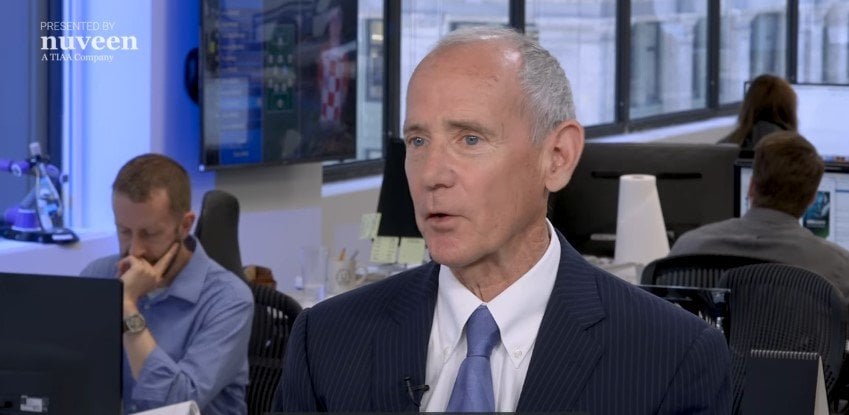“The Conscious Investor” is presented by Nuveen. “Social Value Investing: A Management Framework for Effective Partnerships” was written by Columbia University’s Bill Eimicke and his colleague, Warren Buffett’s grandson, Howard Buffett. The framework for the book was inspired by Berkshire Hathaway and modeled after the company’s application of value investing. Like value investing, social value investing employs a long-term strategy that the authors believe unlock hidden or intrinsic value. The book focuses on the partnerships between the public, private, and philanthropic sectors that are needed to tackle the world’s greatest problems.
Q2 hedge fund letters, conference, scoops etc
Bill Eimicke: Expanding Warren Buffett's Value Investing Approach To The Socially Responsible Sector
Transcript
This is the conscious investor represented by Nuveen. I'm here with Bill Eimicke professor at Columbia University and coauthor of social value investing. So tell me why did you decide to write this book. You decided to write the book because we really believed that profit and purpose can go together that you don't have to choose one or the other. And in fact I'll go even further than that. If we look at some of the bigger problems facing the world inequality climate change opportunities the disappearance of work automation those are problems that are not going to be solved by government alone. But they're not going to be solved by the private sector alone either. So we've been researching this area for 10 years trying to find a way that you can be efficient and do good at the same time. And I think if people have a chance to take a look at the book they'll see we found examples from all over the world and we think there's much more to come. So it's not one or the other. It's both. And your book goes a little bit further than some other socially irresponsible books where you're talking about that it can be done you're talking about how it can be done. Exactly.
So there are examples in the book from India from Brazil from right here in New York City even believe it or not from Afghanistan where the three sectors are working together to make a difference in the world for people who need a difference made but also make the economy better and stronger and right here in New York City you look at Central Park and the Highline there are two examples of things that are beloved by people from all over the world. But they've been tremendously good for the New York economy. And why is this cross-sector partnerships such an important part of making things happen. Because I believe one government has gotten very very big and bureaucratic that's a problem. And number two it's become very contentious as well as we see every day in the newspapers. If I'm a Democrat and you're a Republican whatever you say I'm against and vice versa. So it's very hard for government to get things done. So that's point number one. Point number two is the solutions to important problems like inequality like the environment require much more than government. It's just not pass a law or passed an edict or pass a regulation. You need to combine the resources that government has and the scope with the ingenuity that the private sector has and then often the third sector as well to work with communities so they accept it as you see in the changes in the book. Without community support on top of the collaboration between government and the private sector none of these things would have happened. And you have one favorite example of how this has really worked in the past. Well we love the mall and I love New York and I'm from New York so Central Park and the High Line are really close to my heart. But the one that's most amazing to me and perhaps the most people is India.
You know what most people think of India they think of poverty they think of streaming people they think of Gandhi and they don't recognize that India is.






